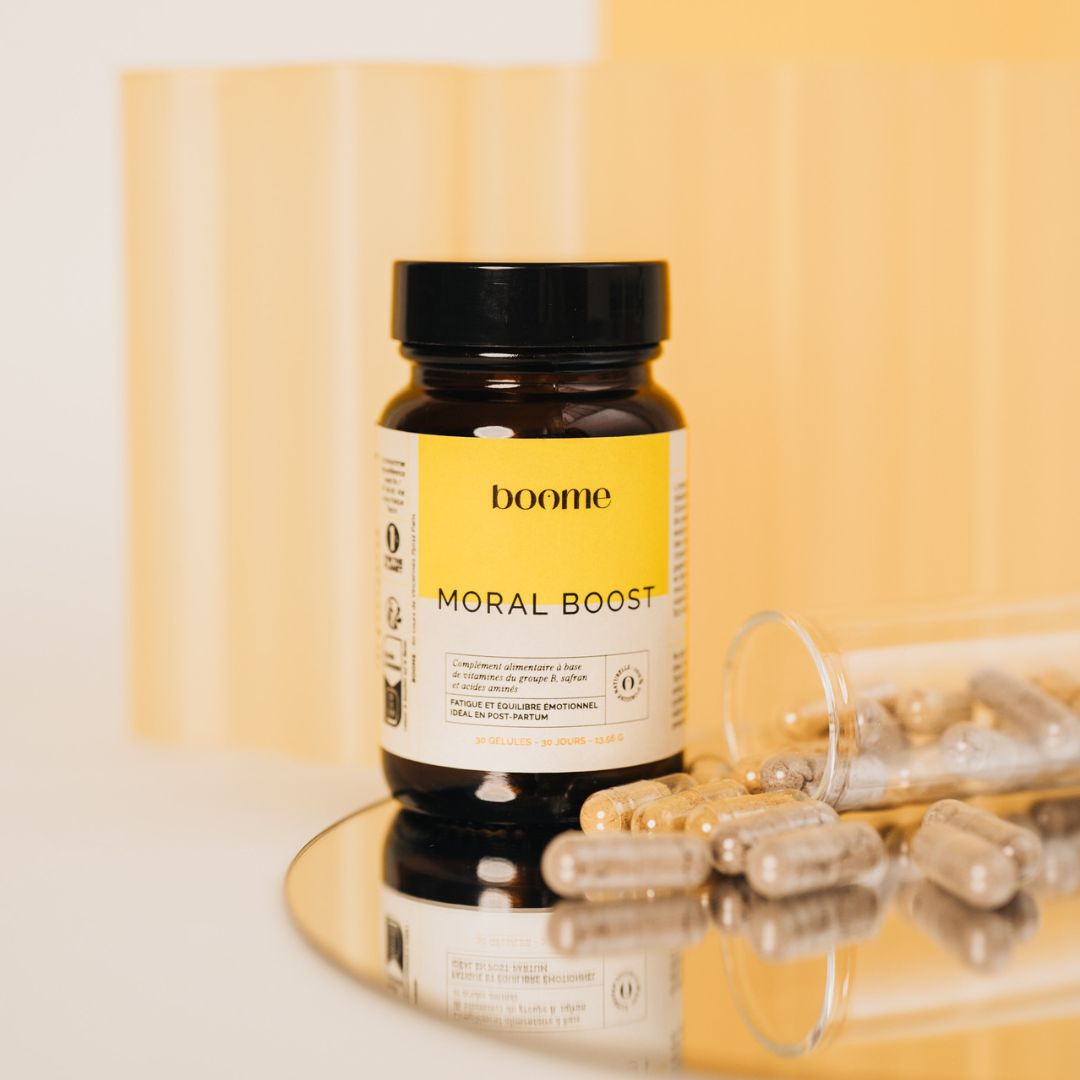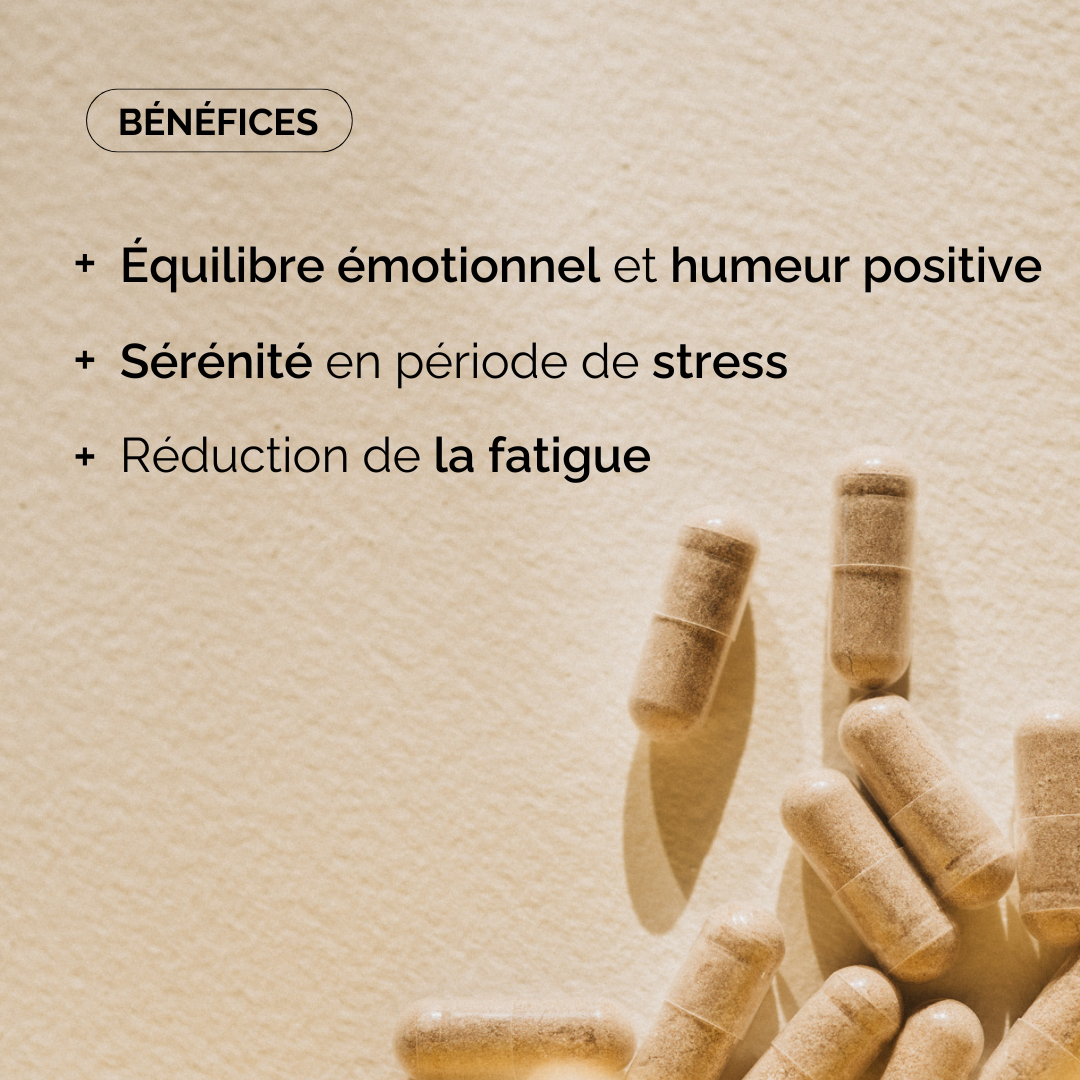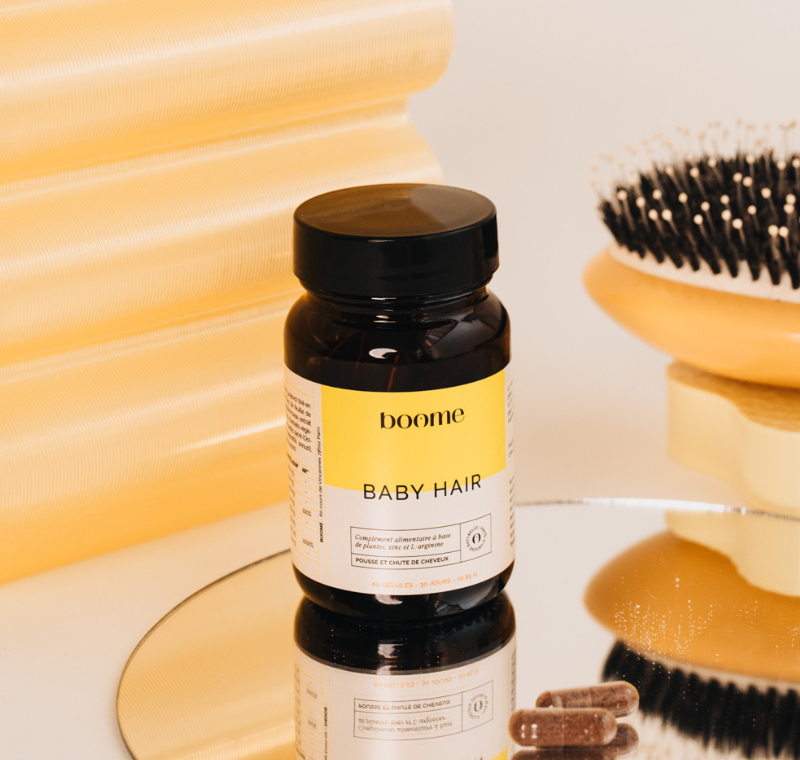
Welcoming a newborn is one of life's most wonderful adventures. But it also comes with many challenges! Among them, choosing postpartum contraception. When should you be concerned about this? What options are available that respect your body, especially if you're breastfeeding? In this article, we explain how to choose the contraception that's right for you so you can experience this new stage of your life with complete peace of mind.
Why is it important to choose postpartum contraception?
When do you become fertile again after giving birth?
From the first few days after giving birth, your body slowly begins to recover. And your fertility may return sooner than you think! Because on average, ovulation can resume around 21 days after giving birth. That's even before your first period (also called the return of menstruation ). However, every woman is unique. And the resumption of ovulation therefore remains highly variable from one body to another.
Why are we more fertile after giving birth?
It may seem surprising, but you should know that you are more fertile after giving birth. Why? Because your body is in a phase of hormonal recovery and regeneration. Its natural hormonal regulation mechanisms are down, which can cause early ovulation.
When to start contraception after childbirth?
Technically speaking, you'll have understood: ovulation can return quickly. And so, you will probably be advised to implement a contraceptive method as soon as possible, at the latest three weeks after giving birth. The idea is to avoid any risk of pregnancy, especially if you are not exclusively breastfeeding your baby (we'll come back to this). However, if you don't feel ready to resume sexual relations: there is no point in forcing yourself to restart a contraceptive method. The best time to resume hormonal contraception is the one that suits you best.
What are the postpartum contraception options?
There are a huge number of contraceptive options out there. You're probably familiar with some of them, while others aren't. Let's take a look!
Barrier methods
- Male and female condoms
One of the most well-known contraceptive methods is, of course, male condoms (and female condoms: yes, they exist!). Effective and hormone-free, you can use them immediately after giving birth, whether you're breastfeeding or not. Their advantage: they also protect you against sexually transmitted infections (STIs).
- Diaphragm, cervical cap and spermicides
The diaphragm and cervical cap are inserted into the vagina before sexual intercourse. They open the cervix, preventing sperm from entering. They are often combined with a spermicide for greater effectiveness. However, it is recommended to wait 6 weeks postpartum before using these contraceptive methods.
Hormonal methods
- Estrogen-progestins
Estrogen-progestin contraceptives combine estrogen and progestin. They come in the form of:
- of pills;
- vaginal rings;
- or patches.
However, these combined estrogen-progestin contraceptive methods are not recommended before 6 weeks postpartum, or even 12 weeks in cases of thromboembolic risk. This is because they increase the risk factor for blood clots, which is already high after childbirth. According to the French National Authority for Health (HAS), they can be used from 42 days postpartum by women who are not breastfeeding.
For those who are breastfeeding, it will be necessary to wait at least 6 months, since estrogen impacts the volume of breast milk produced.
- Progestins
Progestin-only contraceptives (such as the mini-pill, implants, or injections) are generally recommended postpartum, even if breastfeeding. They do not pose a risk of blood clots or thromboembolic events. And they do not affect milk production.
You can therefore opt for this method of contraception from the first weeks after giving birth. The contraceptive implant, for example, offers long-term protection (up to three years). The injections, on the other hand, will need to be renewed every three months.
Do you have a thousand questions about what happens after giving birth? Our article , How Long Does the Postpartum Period Last, will interest you!
Intrauterine devices (IUD)
- Copper IUD
Effective methods of contraception also include the copper IUD. A hormone-free method, you can make an appointment with your midwife to have one inserted as early as the 4th week postpartum (unless you have a cesarean section). How does it work? This device releases copper ions that are toxic to sperm, thus preventing fertilization. It can remain in place for 5 to 10 years.
- Levonorgestrel IUD
The hormonal IUD (levonorgestrel) releases a small amount of progestin directly into the uterus. This thickens cervical mucus and thins the uterine wall… and thus prevents fertilization. It is also inserted from 4 weeks after delivery and remains effective for 5 years.
An attractive benefit: it reduces menstrual bleeding, making it an attractive option for women who suffer from very heavy periods.
Natural methods of postpartum contraception
- What is the LAM method (Lactational Amenorrhea Method)?
The LAM method , or Lactational Amenorrhea Method, is a natural method of contraception for breastfeeding women. It's quite effective because the hormones that produce milk inhibit ovulation for six months after giving birth. You can therefore choose this method of contraception if you are fully breastfeeding and your period has not yet resumed. This method does not work if you are not breastfeeding, of course!
- Methods of knowing ovulation
There are also different methods to observe the different signs of ovulation such as:
- body temperature monitoring;
- cervical mucus analysis.
However, they remain less reliable postpartum, as your cycles may be irregular for some time.
Permanent contraceptive methods
- Tubal ligation
Tubal ligation is a surgical sterilization method that blocks the fallopian tubes, thus permanently preventing fertilization.
- Electrocoagulation
Another permanent method is electrocoagulation. This destroys the tissue of the fallopian tubes using electric current, making any further pregnancy impossible.
- Fitting rings/clips
Rings or clips are slightly less invasive, but equally permanent, methods of contraception. They involve placing these devices on the fallopian tubes to block them.
How to choose the best contraception for you?
The best method of contraception for you depends on many factors: what are your personal needs? What is your health status? Are you breastfeeding your baby? In short, our main recommendation is to discuss it with your healthcare professional. They will be best placed to find the method that suits your lifestyle and future plans. So don't hesitate to request a postnatal consultation to discuss it.
Pssst… To regain your serenity after giving birth and soothe your stress, our Moral Boost food supplement could well become your best ally!
Your most frequently asked questions about postpartum contraception
Can I use postpartum contraception while breastfeeding?
Of course! Using a method of contraception while breastfeeding is entirely possible. But it's important to choose it carefully. Some are particularly recommended for breastfeeding women because they don't affect the quality or quantity of breast milk.
What methods are recommended while breastfeeding?
Exactly! While breastfeeding, choose a hormonal contraceptive that doesn't interfere with your lactation. This includes progestin-only contraceptives, such as:
- the microprogestin pill;
- the progestin implant;
- both types of intrauterine devices (IUDs).
Finally, let's not forget male and female condoms, which are also safe options that have no impact on breastfeeding. That's right, because the good news is: your partner can also take care of the couple's contraception! As they say...
What are the possible side effects of postpartum contraception?
Depending on the type of contraception chosen, you may experience some side effects such as:
- irregular bleeding;
- headaches;
- mood swings;
- pelvic pain;
- weight gain;
- some breast tenderness;
- irritations/allergic reactions (if condoms).
Not all the time, and not all at once, rest assured! However, if this is the case and you feel like you're "suffering" from your contraception, talk to a healthcare professional. Don't let it get to you; other solutions will undoubtedly suit you better.
In short, you've got it: choosing the ideal postpartum contraception is an important decision, one that should be made based on your needs and lifestyle. With all the options available, you now have the keys to making an informed choice!











